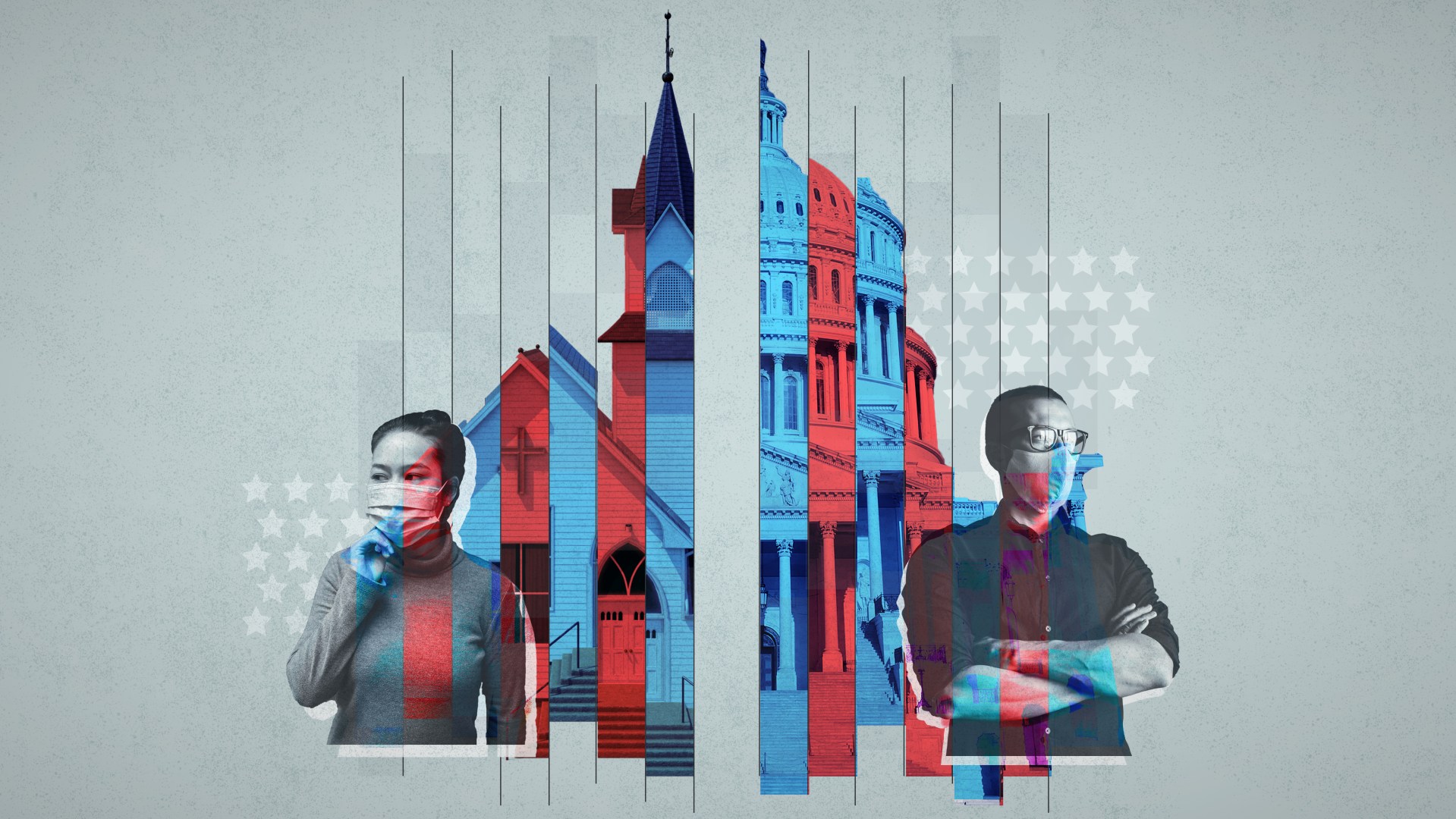This was a strange Easter of isolation and lament. Our country’s response to the novel coronavirus shut most church doors. My church, like many, moved to online Easter services, which I found both uncanny and comforting. “Christ is risen!” our pastor declared. “He is risen indeed,” we mumbled at the laptop while wrangling cranky twins.
But some churches did meet in person, defying public health recommendations and even the threat of arrest. Most prominent among them is Tony Spell of Baton Rouge, Louisiana, a Oneness Pentecostal who for weeks insisted that keeping his church open demonstrates faithfulness and the closure order tramples his religious liberty. If one of his congregants dies of COVID-19 contracted at church, Spell told TMZ, “they died like free people, fighting for their convictions.”
This rationale isn’t without its appeal. Christians should “not [neglect] to meet together, as is the habit of some,” Hebrews 10:25 (ESV) instructs; and, as the apostle Peter thundered, we “must obey God rather than any human authority” (Acts 5:29, NLT). There’s something deeply unsettling about empty pews on Easter Sunday. Yet refraining from physically gathering for worship is still the right decision. “Meeting together” and “obeying God” never equate with doing harm to your neighbor.
The legal question is fairly straightforward. The stay-at-home orders shuttering churches depend on “police power,” which in our constitutional system is primarily held by state governments, not Washington. Police power is a broad concept that American legal theorists often connect to “two great common law maxims,” explains Brandeis University historian Michael Willrich in Pox: An American History. The two maxims are sic utere tuo ut alienum non laedas (“use your own so as not to injure another”), and salus populi suprema lex esto (“the welfare of the people is the supreme law”). US jurists have long agreed that quarantine regulations can be a legitimate use of police power to prevent injury and protect public welfare.
That’s not to say a quarantine rule could never violate religious freedom. Police powers aren’t unlimited, and the gathering bans would be indisputably unacceptable if they targeted religious groups. For example, President Trump has said he hopes to have sports fans back in stadiums by the end of the summer. Come August, if tailgating were permitted and Sunday services weren’t, that would be a breach of religious liberty, and I’d be quoting Peter.
More important than court cases, though, is what refusal to suspend in-person services will do for Christians’ reputation—our witness in a frightening time.
More important than court cases, though, is what refusal to suspend in-person services will do for Christians’ reputation—our witness in a frightening time. Refusal to stop meeting physically will all too easily suggest to those outside the church, particularly on the political Left, that the cause of religious liberty was always the selfish ploy they suspected.
Accusations that religious liberty claims are cover for legal oppression of others are a common feature of the culture war. Critics of the Trump administration have argued that its religious liberty agenda is actually intended to give Christians “more rights … while the rest of us have less.”
A church that refuses to stop holding large-scale gatherings while the rest of its community practices social distancing provides apparent confirmation of every one of those bitter assumptions. There’s “no greater gift to the enemies of religious liberty,” The Benedict Option author Rod Dreher recently argued, than Christians who “demand their rights and spit on their duties of charity.” Gathering in person to worship while others put their lives on hold for the sake of strangers smacks of selfishness, not conviction. However faithful the intent, the effect is far afield from winsome witness.
The default Scripture passage for Christians who find themselves at odds with the government is Romans 13:1–10. Although its injunction to live by the law of love, which won’t conflict with any righteous authority, is surely relevant here, it can’t be read apart from Romans 12:9–21.
“Let love be genuine,” Paul begins his exhortation there. “Rejoice in hope, be patient in tribulation, persevere in prayer” (ESV). Though much of this rapid-fire list of instructions for the Christian life concerns our care for each other within the church, Paul also addresses our interactions with non-Christians, “strangers,” and even “those who persecute” us.
“Repay no one evil for evil,” he writes, “but give thought to do what is honorable in the sight of all. If possible, so far as it depends on you, live peaceably with all” (ESV). Whatever we make of social distancing rules, it’s clear that “what is noble in the sight of all” right now is complying with public health directives to stop the spread of this virus. Meeting for in-person church services amid a pandemic, even on Easter, is not.
Celebrating Easter at home, in isolation from each other, felt wrong and disconcerting. Zoom is not the proper venue to hail the climax of history, God’s redemption of creation and triumph over sin, death, the Devil, and every evil that besets us. I hope never to mark another Easter like this one again. But I joined most Christians in America in worshipping from home on Easter because that’s what “not neglecting to meet together” looks like for now. It may not have the lonely thrill of contrarianism, but it’s what it means to “live peaceably with all” during pandemic.
Bonnie Kristian is a columnist at Christianity Today, a contributing editor at The Week, a fellow at Defense Priorities, and the author of A Flexible Faith: Rethinking What It Means to Follow Jesus Today (Hachette).










